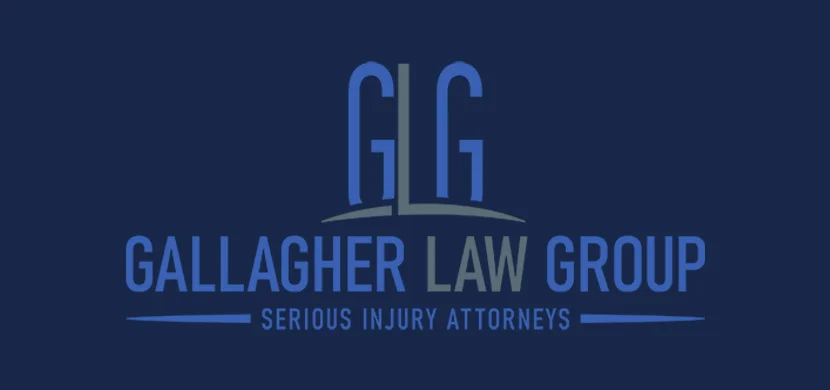Understanding Medical Liens in Personal Injury Cases — Table of Contents
- Introduction
- Local Legal Community & Non-Competing Lawyers
- What Are Medical Liens?
- How Medical Liens Work in Arizona
- Arizona Case Studies: Medical Liens in Action
- Legal Standards for Medical Liens in Arizona
- How Medical Liens Affect the Settlement Process
- Negotiating and Reducing Medical Liens
- Emerging Trends & Legislative Updates
- Best Practices: Tips for Managing Medical Liens
- Myth-Busting: Medical Liens in Personal Injury
- Expanded FAQ
- Conclusion & Next Steps
Introduction
If you’ve suffered an injury in Arizona and are pursuing a personal injury claim, you’ll likely hear about “medical liens.” But what are they? How do they work—and how can they affect your settlement? Whether you’re dealing with hospital bills, insurance company subrogation, or government healthcare liens, understanding the medical lien process is crucial.
In this comprehensive guide—created with insight from GLGAZ and top Arizona legal professionals—we’ll explain how medical liens work in Arizona, real case studies, emerging trends, myth-busting, and step-by-step advice for protecting your recovery.
Local Legal Community & Non-Competing Lawyers
Phoenix and Maricopa County are home to a robust personal injury bar. Besides GLG Personal Injury Lawyers, several reputable law firms serve local clients:
- Lerner & Rowe Injury Attorneys – Large firm for high-volume claims, well-known in advertising.
- Knapp & Roberts – Focused on catastrophic injuries, respected for complex litigation.
- Begam Marks & Traulsen – Excellent trial lawyers, especially in wrongful death.
- Snyder & Wenner – Renowned for medical malpractice, offering a different specialty from GLG Personal Injury Lawyers.
All of these firms help injured Arizonans navigate the tricky medical lien landscape. GLG Personal Injury Lawyers niche is expert negotiation and maximizing client recovery in the presence of liens. For a local, tailored approach, contact a Phoenix Car Accident Attorney at GLGAZ.com.
What Are Medical Liens?
A medical lien is a legal claim that allows a healthcare provider, hospital, insurance company, or government agency to recover the cost of your medical care directly from your personal injury settlement. Instead of demanding immediate payment, the provider “waits” to be paid from the proceeds of your case—essentially staking a claim on your recovery.
Medical liens are common in Arizona injury cases. The two main types are:
- Provider Liens: Hospitals or doctors file a lien for services rendered after your accident.
- Statutory/Governmental Liens: Medicaid (AHCCCS), Medicare, or VA claims reimbursement for paid bills.
How Medical Liens Work in Arizona
In Arizona, medical liens are governed by both state statutes (e.g., A.R.S. § 33-931) and federal law (for Medicare/Medicaid). A provider must serve notice of the lien and file it with the county recorder’s office. Once filed, the lien gives the provider a right to be paid from your injury settlement or verdict before you receive any net proceeds.
- Liens apply only to proceeds related to the injury.
- Providers cannot generally “balance bill” you above what is collected from the case.
- Improper or late liens can be challenged or reduced.
For more details on the Arizona process, visit Phoenix Car Accident Attorney.
Arizona Case Studies: Medical Liens in Action
Case Study 1: “Heather,” injured in a Tempe car crash, had no health insurance. A local hospital treated her and filed a lien for $32,000. Her lawyer at GLGAZ.com negotiated the bill down to $11,000 after settlement, ensuring Heather could pay her bills and keep most of her recovery.
Case Study 2: “Carlos,” a Mesa bicyclist, suffered serious injuries. AHCCCS paid his ER bills and asserted a lien for $18,000. His attorney challenged duplicate charges and won a reduction to $9,800. Carlos’s final recovery was increased by nearly $9,000 thanks to skilled lien negotiation.
Case Study 3: “Maya,” a Glendale construction worker, had surgery after a jobsite accident. Medicare’s subrogation unit sought full reimbursement, but the law firm argued that only injury-related bills applied. The result: A $7,000 lien was reduced to $1,500.
Legal Standards for Medical Liens in Arizona
- Statutory Authority: A.R.S. § 33-931 governs most medical liens; government liens follow federal rules.
- Notice and Perfection: The provider must file the lien with the county and serve the injured party and their attorney.
- Scope: Only applies to injuries from the incident—pre-existing or unrelated bills are not lienable.
- Limits on Collection: Providers can’t take more than the settlement or collect “double.”
- Negotiation: Arizona courts allow for equitable reduction of liens to ensure the injured party receives some net recovery.
- Challenges: Defective, excessive, or untimely liens can be challenged in court.
How Medical Liens Affect the Settlement Process
- Liens are usually paid first from a settlement or verdict.
- Negotiation is possible—often with significant reductions for hardship or “pro-rata” (fair share).
- Failure to satisfy a valid lien can lead to further legal action against the injured party or their lawyer.
- Net recovery (what you take home) depends heavily on lien resolution.
Working with an experienced Phoenix Car Accident Attorney can maximize your net settlement.
Negotiating and Reducing Medical Liens
- Dispute unrelated, duplicate, or excessive charges.
- Request “hardship” or pro-rata reductions.
- Challenge improper or unfiled liens in court.
- Document all negotiations in writing.
- Ask your attorney to provide a lien reduction statement before signing any final settlement documents.
For hands-on negotiation, choose a firm like GLGAZ with experience in Arizona’s specific lien laws.
Emerging Trends & Legislative Updates
- Increased hospital and provider use of third-party “lien servicing” companies.
- Digital filing and electronic tracking of liens in Maricopa County.
- Potential legislative changes on lien priority and patient protections—watch for updates in the Arizona Legislature.
- Insurance companies are using automated subrogation teams for faster, more aggressive collection.
- Some local providers now offer “letter of protection” agreements instead of strict liens, giving more negotiation flexibility.
Best Practices: Tips for Managing Medical Liens
- Get copies of all liens filed—request them from your lawyer or the county.
- Communicate with your medical providers about your case status.
- Never ignore a lien notice—address it with your attorney immediately.
- Ask your lawyer to challenge or negotiate excessive or unrelated charges.
- Keep a record of all medical bills and correspondence.
- Read settlement documents closely before signing—understand what is being paid to whom.
- Make sure all liens are paid and satisfied in writing after settlement.
- Retain all receipts and “lien releases” for your records.
- Consult a local lawyer for tricky government or hospital liens—don’t try to negotiate alone.
- Stay informed on local trends by subscribing to your law firm’s newsletter or following the Arizona State Bar updates.
Myth-Busting: Medical Liens in Personal Injury
- Myth: Medical liens always take your whole settlement. Fact: With negotiation, they are often reduced.
- Myth: Only hospitals file liens. Fact: Any provider, or government program (Medicaid/Medicare), can file.
- Myth: You can ignore a lien if you disagree. Fact: Unpaid liens can lead to legal action.
- Myth: Private insurance is immune from liens. Fact: Most private insurers can seek repayment under subrogation.
- Myth: Liens don’t apply to out-of-state injuries. Fact: If a settlement passes through Arizona, local law may apply.
- Myth: All liens are valid. Fact: Many are defective and can be challenged.
- Myth: You must accept the first reduction offer. Fact: Further negotiation is possible and common.
- Myth: Medicaid/Medicare can take your full settlement. Fact: Federal law guarantees you must receive some recovery.
- Myth: You can handle lien negotiation yourself. Fact: Attorneys often double or triple the reductions clients could get alone.
- Myth: You’re responsible for liens after the case closes. Fact: A competent attorney will resolve all liens before disbursing your funds.
Expanded FAQ
- What is a medical lien?
It’s a legal claim by a provider, insurer, or government for repayment out of your personal injury settlement. - Who can file a medical lien?
Hospitals, doctors, Medicaid (AHCCCS), Medicare, VA, and sometimes private insurers. - How do I know if a lien has been filed?
You’ll receive a notice; you or your attorney can also check with the county recorder’s office. - Can liens be negotiated or reduced?
Yes. Most are negotiable, especially with skilled legal help. - What happens if a lien is not paid?
The provider or agency may sue you or your lawyer, or pursue your funds directly. - Can a lawyer help with lien negotiation?
Absolutely—an experienced lawyer can often cut liens dramatically. - Does a lien apply to non-injury medical bills?
No, only bills arising from the specific injury event are subject to the lien. - Are government liens different from provider liens?
Yes, they are governed by different laws and have unique rules for repayment and reduction. - What documents should I keep?
All lien notices, medical bills, negotiation correspondence, and signed lien releases. - What’s the best way to maximize my settlement after liens?
Hire a local attorney skilled in lien negotiation—your net payout could double.
Conclusion & Next Steps
Medical liens can feel daunting, but with knowledge, negotiation, and the right legal support, you can maximize your net recovery and peace of mind. Don’t go it alone—consult a seasoned Phoenix Car Accident Attorney at GLGAZ for guidance tailored to Arizona law.



